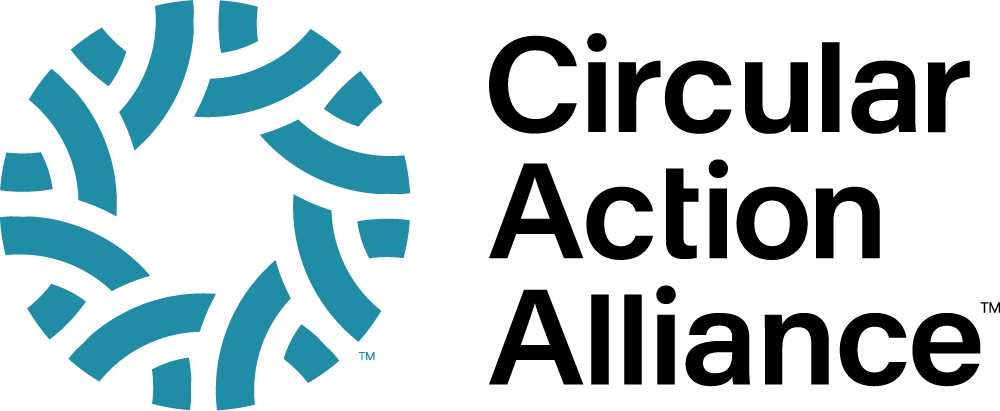
Oregon
The Plastic Pollution and Recycling Modernization Act requires producers of residential and commercial packaging, printing and writing paper, and food serviceware to join a Producer Responsibility Organization (PRO), and through the PRO, fund the end of life of those materials, which includes processing and recycling.
CAA is preparing to be the PRO in Oregon. On April 1, 2024, CAA was the only prospective PRO to submit a program plan to DEQ. On September 27, 2024, CAA submitted a revised program plan incorporating feedback from the Oregon Department of Environmental Quality (DEQ) and the Oregon Recycling System Advisory Council and expects to submit a third and final plan by the end of the year.
FAQ
-
Yes. Both the initial program plan, which was submitted on April 1, 2024, as well as the revised program plan, which was submitted on September 27, 2024, can be found at the below links. They are also available on the DEQ website.
· April 1, 2024, initial program plan
· September 27, 2024, revised program plan
-
No, both CAA and DEQ anticipate that the second program plan will be rejected, an expected and planned part of the process. Under the RMA, CAA has the opportunity to submit up to three plans, receiving feedback from DEQ and Oregon’s Recycling Council at each stage. This iterative process allows CAA to develop a plan best suited for Oregon. CAA intends to submit a third and final program plan in December 2024.
-
Oregon’s Plastic Pollution and Recycling Modernization Act (RMA) creates important changes in how materials management is undertaken and funded within the state. The legislation strives to improve the overall effectiveness of Oregon’s recycling collection and processing ecosystem through a shared responsibility model.
The RMA was passed in 2021 and the program will be operational beginning July 1, 2025.
-
CAA is preparing to be the PRO in Oregon. On September 1, 2023, CAA provided the Oregon Department of Environmental Quality (DEQ) with a letter of intent indicating it planned to submit a program plan. On March 31, 2024. CAA was the only prospective PRO to submit a program plan to DEQ.
-
To comply with producer registration requirements under Oregon’s EPR law for paper, packaging and food serviceware, producers must register with CAA unless they qualify for an exemption or intend to submit an individual compliance plan. Producer registration deadlines for CAA and Colorado have now passed and producers are encouraged to register with CAA in California, Colorado, and Oregon as soon as possible to access CAA’s producer education forums and resources, including detailed reporting guidance ahead of the March 31, 2025, reporting deadline for Oregon.
-
The ultimate goal of RMA implementation is a transformed system of materials usage and recovery that will be responsive to the needs of all stakeholders and that will lead to significant environmental and social benefits.
The RMA cannot reach its full potential without a well-functioning PRO working with local governments, waste and recycling service providers, material processors, end markets, state officials and other links in the materials chain. CAA believes that successful implementation will achieve four high-level goals:Reduce negative environmental, social and health impacts from end-of-life management of products and packaging.
Increase the diversion of recyclable materials from disposal.
Improve public participation, understanding and equity in the state’s recycling system.
Create a system that fulfills the needs and regulatory requirements of the PRO, its members and all other relevant stakeholders.
-
Each company must review the producer definition under each state’s packaging EPR law and determine whether it is a covered producer in California, Colorado, and/or Oregon. CAA is not able to provide legal advice or make this determination for you.
However, CAA has developed guidance to help businesses answer the two primary questions they need to ask that will help determine if they are obligated under the EPR laws:
Is the material associated with my products covered by the EPR laws?
Is my business the responsible producer for those materials?
Please review CAA’s guidance materials for further information.
Please note that CAA guidance is not meant to constitute legal advice, and CAA assumes no responsibility for the decisions made by producers in determining their obligations. CAA suggests that producers work with their attorneys to review the relevant statutes, rules and regulations to determine their responsibilities.
Relevant Statutes:
-
Throughout 2024, CAA will reach out to local governments and other stakeholders to design and implement key program elements. CAA completed a system optimization project that built on an earlier study commissioned by the state to understand local government expansion requests.
CAA submitted a revised program plan, integrating DEQ’s recommendations and revisions, on September 27, 2024. CAA anticipates submitting a final program plan in December of this year.
-
Prior to receiving producer reporting data in March 2025, CAA can only provide base fee estimates. In the third program plan submission in December 2024, CAA will provide an updated base fee schedule, encompassing 60 material categories and with updated system costs based on the results of the Oregon Recycling System Optimization Project which is estimated to be about 50% of program costs.
In the absence of producer supply data, CAA has included three scenarios in the revised program plan that producers can reference for initial budgeting.
-
Additional data and information are needed to finalize both CAA’s budget and the fee schedule based on that budget. A critical requirement to setting an accurate fee schedule is producer supply data, which CAA won’t collect until March 2025. Prior to March 2025, CAA will work to refine the fee schedule as much as possible, including the inclusion of a new fee schedule as part of a second program plan submission in September 2024.
-
Producers will need to report data covering the 2024 calendar year by March 31, 2025.
CAA is hosting reporting Q&A sessions open to registered producers and will be providing detailed reporting guidance to producers who have a signed Participant Producer Agreement with CAA. Producers may also review the draft reporting categories list included in CAA’s initial program plan submission. While the 62 categories are still subject to DEQ approval, CAA anticipates that the categories will stay sufficiently stable for producers to begin reviewing the reporting categories ahead of the third program plan submission in December 2024. Learn more about CAA’s resources for producers in our Producer Resource Center.
Key Milestones in the Regulatory and Implementation Process
State Rulemaking Updates
Phase #1 Rulemaking
DEQ formed a rulemaking advisory committee (RAC) in 2022 to inform the first phase of rulemaking concepts. The Environmental Quality Commission adopted the rules November 2023. The Commission approved the rules as submitted on November 16 and 17, which have subsequently been approved by the Oregon Secretary of State.
Phase #2 Rulemaking
In the summer of 2023, DEQ began the second phase of rulemaking and established a new rulemaking advisory committee. CAA was appointed to this rulemaking advisory committee. Phase Two of the rulemaking process is underway and Oregon DEQ has issued proposed rules. DEQ held public hearings in late June and accepted public comments through July 26, 2024. Next, DEQ will include a written response to comments in a staff report that DEQ will submit to the Environmental Quality Commission. DEQ may modify the rule proposal based on the comments received. Proposed rules will only become effective if the Environmental Quality Commission adopts them.
Please visit DEQ’s website for more information.
Technical Working Groups
DEQ formed and hosted two different technical workgroups – the first focused on the list of materials that should be accepted for recycling in Oregon. The second technical workgroup, which CAA participated in, met from December 2022 to January 2024 to discuss issues related to commingled recycling processing facilities (CRPF) in Oregon for input into Phase II rules. More information on the CRPF Technical Working Group can be found of DEQ’s website.
Under the Plastic Pollution and Recycling Modernization Act, DEQ is required to convene an Advisory Council to consult with DEQ on the development of rules and the implementation of Plastic Pollution and Recycling Modernization Act. For more information on the Oregon Recycling System Advisory Council, please visit DEQ’s Oregon Recycling System Advisory Council landing page.













